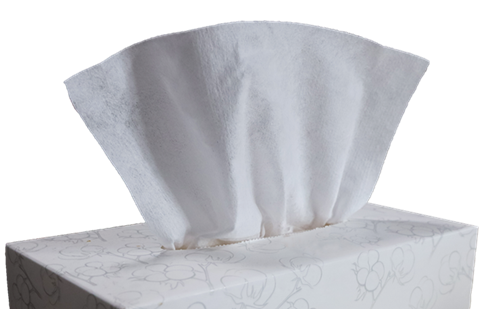Recently, an investigation into the facial towel market has drawn widespread attention in China. Tests revealed that over 90% of facial towels on the market have chemical residue issues.

Some products claiming to be made of "plant fibers" are actually made from chemical fibers. Manufacturers use the term "soft towel" to cut costs, posing health risks to consumers.
Facial towel products must comply with GB/T 40276-2021 "Soft Towels" and GB 15979-2024 "Hygienic Requirements for Disposable Sanitary Products" standards.
As an industry-leading professional testing organization, CIRS Testing understands consumer safety concerns and deciphers the safety code of facial towels from a testing perspective, using scientific data to ensure your "facial cleansing needs" are protected!
Key Indicators for facial cleansing towel products
Chemical Residue Testing
Chemical residues are the most dangerous safety hazard in facial towels, especially in products made from viscose and other chemical fibers, which require large amounts of sulfuric acid and carbon disulfide during production, easily leading to excessive chemical residues.
Long-term exposure may damage the skin barrier and even affect the nervous system. The GB/T 40276-2021 "Soft Towels" standard specifies clear limits for various chemicals.
Residual Sulfur
For products containing viscose fiber, sulfur compounds are introduced during production, so residual sulfur levels must be checked. High levels can cause odors. The standard requires residual sulfur to be ≤10 mg/100g.
Pesticide Residues
For cotton-containing products, pesticides are used during cotton fiber production to prevent pests. The standard requires pesticide residues to be ≤0.5mg/kg (total), testing for over 100 types of pesticides including organochlorines, organophosphates, and organonitrogens.
Formaldehyde Content
Soft towel products with coatings and dyes must consider formaldehyde content, as excessive levels can harm the body, especially in infants with weaker immune systems. The standard requires formaldehyde content to be ≤20mg/kg.
Heavy Metals
Soft towel products primarily used on the body must meet certain heavy metal content requirements, referencing cosmetic-grade standards: lead ≤90mg/kg, cadmium ≤100mg/kg.
Fluorescent Whitening Agents
According to GB/T 40276-2021, fluorescent whitening agents in soft towels must not be detected. Samples are observed under 254nm and 365nm UV light, and if fluorescence is detected, FZ/T 01137-2016 standard analysis is used. If no fluorescence is detected, it is considered undetected.
Hygienic Safety Indicators
Facial towels directly contact the skin and even mucous membranes; microbial overgrowth is a major cause of infections. The mandatory national standard GB 15979 states that cotton soft towels, soft towels, and soft towels are similar products with different materials, so facial towels must comply with GB 15979.
Testing includes microbiological and toxicological indicators. For detailed information, please refer to the specific testing requirements outlined in GB 15979-2024, "Hygienic Requirements for Disposable Sanitary Products.
Product Labeling Requirements
Labels should include product name (including "soft towel"), fiber content and percentage, production date, shelf life, product specifications, and quantity.
Investigations found that many products labeled as "plant fiber" or "regenerated cellulose fiber" actually primarily contain viscose and other chemical fibers.
According to standards, only products with "100% cotton fiber" content can be labeled as "cotton soft towel" or "pure cotton soft towel." Products using viscose or polyester fibers can only be labeled as "soft towel."
Other Safety Tests
GB/T 40276-2021 "Soft Towels" outlines internal quality requirements, including unit area mass variation coefficient, pH value, odor, and lint shedding coefficient.
CIRS Testing reminder
Relavant manufacturers should strictly adhere to the relevant national standards when producing facial cleansing towels, ensuring that all chemical residues, heavy metals, and other harmful substances are within the safe limits. Regular quality checks and comprehensive testing are indispensable steps in the production process.
If you need any assistance or have any questions, please get in touch with us via test@cirs-group.com.
